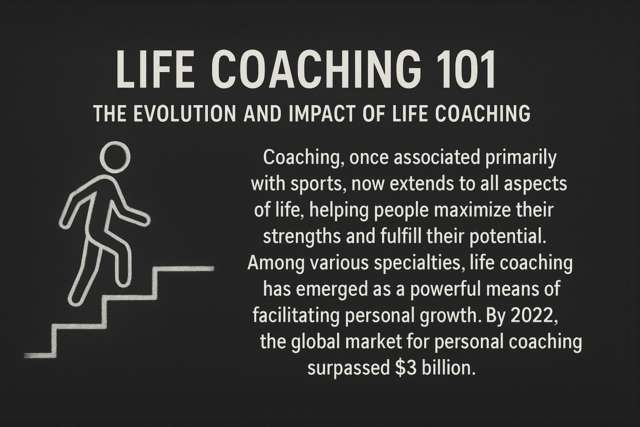There is no way a book can be released unless it has gone through the editing process. It does not matter if you are Charles Dickens or if you are an author writing a book about hammers and screws, editing is an incredibly important part of the writing process.
One of the biggest mistakes that new writers make is not editing enough. One of the biggest reasons for this is the fact that many authors want to get their book published and receive the fame and glory of being a published author--editing is simply too long of a process for them. While a book can take three to four months to write, editing can take six months.
Editing is about patience, attention to detail, and wanting to achieve perfection with whatever one writes.
In the dictionary, editing is defined as follows.
This is what an editor does.
- Collect, prepare, and arrange a book for publication.
- Revise and correct a manuscript.
- Eliminate something from a manuscript.
- Add something to the manuscript.
As we can see here, the act of editing is not just about spelling, changing some grammar, and making sure everything looks good. It is about adding and removing items to help the book. It is about preparing the book and it is about revising everything to make the manuscript ready for print.
Neither is editing just about knowing how things should read. When you edit, you are using your creative skills to help create a better story. You are using your human relation skills to ensure that your book is ready for publishing through a publisher and you are using your managing skills to oversee your editing process in both small and large detail so that you can be happy with the finished product.
Types of Editing
There are two types of editing, self-edit and peer edit. The self-edit should be the first edit you do and the last edit you do. Peer edits should be done in the middle, with self-edits done after each peer edit...if you have the time.
- Self-edit. The self-edit must be done. You cannot write a book without being able to put together a self-edit afterwards. With the self-edit, you are editing after you write the book, after peer edits are done, and before your send the book away for publication. Often self-edits can be difficult because we do not see the errors which we make, while others may. Self-edits are also hard for new writers to do because they may be impatient to be published and do not want to spend the long amount of time on a self-edit that is required.
- Peer edit. The peer edit is the edit that is done by your friends, family, and editors. With a peer edit, grammar and spelling are not the main focus. Instead, readability, plot points, and clarity are what are focused on the most.
What Does Editing Encompass?
As we have said, editing is not just about spelling and grammar. It is about making a story readable and that encompasses much more than just spelling and grammar and punctuation corrections. The things that you need to focus on with editing are,
- Spelling.
- Capitalization.
- Punctuation.
- Sentence Structure.
- Grammar.
- Verb Arrangement.
- Subject Arrangement.
- Verb Tense.
- Word Usage.
- Minor Plot Point.
- Readability.
Conclusion
Editing is what has to be done whenever you write a book. There is no getting around editing and whether the editing is done by you or by someone else, it is of vital importance. No book has ever been published without being edited first (although self-published books sometimes skip the editing process....and it shows!).
No publisher will publish without editing and no bestselling author can write a perfect book on the first draft.
All writers edit. Established writers know that editing is the most important process, while new writers feel that editing is something that their editors should do, not them.
Why Should You Edit?
Now you have seen what editing is, but do you know why you should edit? Authors know that they are supposed to edit, but do they question why that is? What is the drive that makes an author spend double the amount of time refining a book than he did to actually write the book?
To the biggest question here, why do you need to edit? It comes right down to the fact that you are a human being. As a human being, you are imperfect. Since you are imperfect, you cannot write a perfect manuscript at the get-go. This is why you need to edit.
Now, we are not saying that you have to write a perfect manuscript by any means, but you do have to have a manuscript that is ready for publication.
A major mistake that new writers make is that they write a book and send it off for publication before they have had a chance to really edit it. The reality is that if a publisher thinks that you did not do any editing, then they are going to toss your manuscript aside. There is a very good reason for that, "Publishers want to make money and editing costs money." If they have to spend too much time editing your book, then they may just pass on your book because the cost of editing it is too much given the risk of a book not selling.
Of course, the risk of rejection is not the only reason that you should be looking at editing your book. There are other reasons as well.
- Editing makes you a better writer. This is a very important reason because the better the writer you are, the more chance you will have at being a successful author. You can think of editing as practice in becoming a great writer, because it is.
- Editing allows you to revise your story. When you write, you probably do so without thinking too much about what is going onto the paper. By that we mean you write what is happening and progress through the story. By editing, you make everything seamless. For example, you may describe a main character walking down a street in a city and in the next passage have him standing on the top floor of a building. When you are writing you do not always think about transitions, so editing allows you to put in the transition of your character going into the building, riding the elevator and so forth.
- Editing shows professionalism. A big rookie mistake that writers make is to assume that publishers will edit their work for them, so why should they bother? When you edit, you are showing pride in your work and publishers will be impressed by that.
- Editing catches everything and helps you turn a good story into a great story.
This may not convince you that editing is important, but the fact of the matter is that editing is incredibly important. If you want to be successful and you want to see your name on the New York Times Best Seller's List, then you need to edit your work. There is no why to editing, just the how, and that is what you must remember.
As an editor, you should be expecting to edit your manuscript, and these are just self-edits, at least four times. You will be amazed at how many things you catch each time you edit your book and this is why you need to edit. Think of editing as painting a room. The first coat gets most of the room but there are patches and colors from the wall showing through, so you have to put on a second coat. The second coat covers nearly everything but you have to touch up a few places with a third coat. By the fourth coat, the room is covered and painted properly. So too is the case with editing.
The Difference Between Light, Medium, and Heavy Edits
Think of editing like body work on a car. When you get an old rusted out car and you do some light work on it, the car gets a bit of a paint job and everything on the outside is made to look better so no one notices the inside. When you get medium body work done, the inside is kind of fixed up and the outside looks great. Now, when you get heavy body work done, everything from the inside to the outside and the engine gets reworked and fixed. Which is the best one? Well, obviously the heavy body work and the same principle goes for editing.
Light Edit
Light editing could be summed up in two words 'spell check', because usually when people do light editing all they do is press F7 on the keyboard and let Microsoft Word do the work for them. While light editing does involve spell check, it should by no means consist only of spell check.
Light editing is making minor changes to the book, but these changes usually do not consist of anything substantial. Things like the tone of the book, characters, and structure are usually not changed with a light edit.
Medium Edit
With a medium edit, there is more done than just changing the spelling and grammar of the story. With a medium edit, the interior of the story, rather than the exterior (spelling, grammar) is changed. When going through a medium edit, you will look at how the characters interact, does it makes sense. Does the tone and personality of the characters stay true throughout the entire book? Are there any inconsistencies? For instance, the character is in France in May and then in Japan in June in a book set in a time before high speed travel.
Heavy Edit
A heavy edit is where things really get reworked. When you do a heavy edit, you are not paying attention to the grammar or spelling anymore, which should have been fixed on the first light edit.
With a heavy edit, you are making major changes to,
- The tone.
- The structure.
- The characters.
- The plot.
Heavy edits are important because they are what will turn a good story into a great story. Light edits gloss over problems, while medium edits are a good fix for other problems. However, it is the heavy edit that changes plot points and makes a story better. For example, if your book deals with a detective in the early 20th century in London but you are having trouble getting the detective believable in that time period; you may do a heavy edit. In the heavy edit, you could change the story from one set in the early 20th century to one set in the early 21st century or even later. This changes the story completely but it can help to make the story better because the character will be more believable.
How Long Should They Take?
The type of edit you do will dictate how long you spend editing. This is a rough guide for how long each edit will typically take you to do.
- Light edit. Since it usually encompasses only spell check, a light edit will take you a few hours.
- Medium edit. This type of edit will take you a few days because you have to read through the story, changing minor plot points.
- Heavy edit. This edit is much more comprehensive and will take you longer, much longer. You will typically spend a month or more on a heavy edit because when you change large parts of the story, you have to make sure everything that you wrote previously fits in with the new theme or plot of the book.
The Editing Pattern
The two edits you will do for sure are the light and medium edits. A heavy edit is only done if you feel there needs to be a major change in the story, but you will not know that until you have done the other edits. When you read through your story editing it, you will see the things that need to be changed and you will begin to change them, which then turns the medium edit into a heavy edit without you even knowing it! Typically, the pattern will be as follows,
- Light edit first, usually right after you complete the book.
- After a month, a medium edit to make sure everything reads properly. If need be, this can turn into a heavy edit if you have to change a lot of things.
- Another light edit is done a week or so after the medium edit to make sure you didn't screw up any spelling or grammar from your medium edit.
- One more medium edit is now done to ensure that everything reads properly. If it does not read properly, you could find yourself doing another heavy edit. If you do a heavy edit again, you will be going back to number one and beginning the editing process again.
- A last light edit is done to make sure that there are no simple mistakes in the story concerning grammar and spelling which should be fixed.












